Only logged in customers who have purchased this product may leave a review.
Description
Master Clear and Healthy Skin with Mooiste Meisie’s Teen Boys 3-Step Skincare Kit
Navigating the teenage years can be a whirlwind of changes, including the onset of various skin concerns. Mooiste Meisie’s Teen Boys 3-Step Skincare Kit is here to simplify and enhance your skincare regimen, ensuring your skin remains clear, healthy, and protected. This comprehensive kit includes a 60ML Face Cleanser, 60ML Day & Night Cream, and 60ML SPF50 Primer, providing everything you need for a flawless and resilient complexion. Let’s explore the incredible benefits of this essential skincare kit.
The Power of the Teen Boys 3-Step Skincare Kit
Mooiste Meisie’s Teen Boys 3-Step Skincare Kit is packed with benefits tailored to the unique needs of teenage skin. Here’s how each product works to perfect your skincare routine:
- 60ML Face Cleanser: This gentle yet effective cleanser removes impurities, excess oil, and makeup, leaving your skin clean and refreshed. It is safe for sensitive skin and works on all skin types, making it a must-have in your daily regimen.
- 60ML Day & Night Cream: This versatile cream hydrates and nourishes your skin throughout the day and night. With fast-acting ingredients, it repairs acne damage, brightens your complexion, and provides anti-aging benefits. It’s designed to control sebum levels and lighten pigmentation, ensuring your skin looks its best around the clock.
- 60ML SPF50 Primer: Sun protection is crucial for maintaining healthy skin, and this SPF50 Primer offers broad-spectrum protection against harmful UVA and UVB rays. It also acts as a perfect base for makeup, ensuring a smooth and long-lasting application.
Understanding the Key Ingredients
The secret behind the effectiveness of Mooiste Meisie’s Teen Boys 3-Step Skincare Kit lies in its powerful ingredients, particularly L-Ascorbic Acid and N-Acetyl Glucosamine.
What is L-Ascorbic Acid?
L-Ascorbic Acid, the purest form of Vitamin C, is a potent antioxidant that provides multiple benefits to the skin. Here’s why it’s a game-changer for your skincare routine:
- Protects Against Environmental Damage: L-Ascorbic Acid shields the skin from reactive oxygen species and other environmental aggressors that cause aging and discoloration.
- Boosts Collagen Production: It stimulates collagen synthesis, helping to reduce wrinkles and fine lines, and restoring elasticity and firmness to the skin.
- Brightens Skin: Vitamin C helps to lighten pigmentation and brighten the overall complexion, giving your skin a radiant glow.
- Supports Skin Health: Found in citrus fruits, bell peppers, and strawberries, this antioxidant plays a crucial role in maintaining overall skin health.
What is N-Acetyl Glucosamine?
N-Acetyl Glucosamine is a versatile skincare ingredient that offers a range of benefits, making it ideal for teenage skin:
- Increases Skin Hydration: It helps to boost the skin’s water content by promoting the synthesis of hyaluronic acid, ensuring your skin stays moisturized.
- Lightens Hyperpigmentation: By inhibiting melanin production, it addresses hyperpigmentation and helps reverse UV-induced skin damage.
- Fights Aging: Promotes collagen production, enhancing skin elasticity, smoothness, and plumpness. It also gently exfoliates, improving skin texture without causing irritation.
- Treats Acne: Early use of N-Acetyl Glucosamine can reduce acne lesions and prevent future breakouts, making it a valuable addition to any acne treatment regimen.
Niacinamide: The Versatile Skincare Hero
Niacinamide, or Vitamin B3, is another powerhouse ingredient found in Mooiste Meisie’s products:
- Reduces Inflammation and Redness: Niacinamide soothes the skin, reducing inflammation and irritation, making it perfect for sensitive skin.
- Controls Oil Production: Helps to regulate sebum levels, preventing excess oil and keeping the skin matte.
- Improves Skin Elasticity: Enhances the skin’s elasticity, reducing the appearance of fine lines and wrinkles.
- Lightens Dark Spots: Effective in treating hyperpigmentation, niacinamide helps to even out skin tone and brighten the complexion.
How to Use the Teen Boys 3-Step Skincare Kit
For best results, follow this simple routine:
- Cleanse: Start with the 60ML Face Cleanser. Apply to wet skin, massage gently, and rinse thoroughly.
- Hydrate and Repair: Apply the 60ML Day & Night Cream in the morning and evening to nourish and repair your skin.
- Protect and Prime: Finish with the 60ML SPF50 Primer in the morning to protect your skin from the sun and create a smooth base for makeup.
Why Choose Mooiste Meisie?
Mooiste Meisie is dedicated to providing high-quality skincare products that cater to the unique needs of its customers. Our Teen Boys 3-Step Skincare Kit is no exception, offering a blend of performance, convenience, and targeted care that sets it apart from other products on the market.
Transform Your Skincare Routine
Experience the comprehensive benefits of Mooiste Meisie’s Teen Boys 3-Step Skincare Kit. Elevate your skincare routine and achieve clear, healthy skin. Visit our website to explore our range and find the perfect products for your skincare needs.

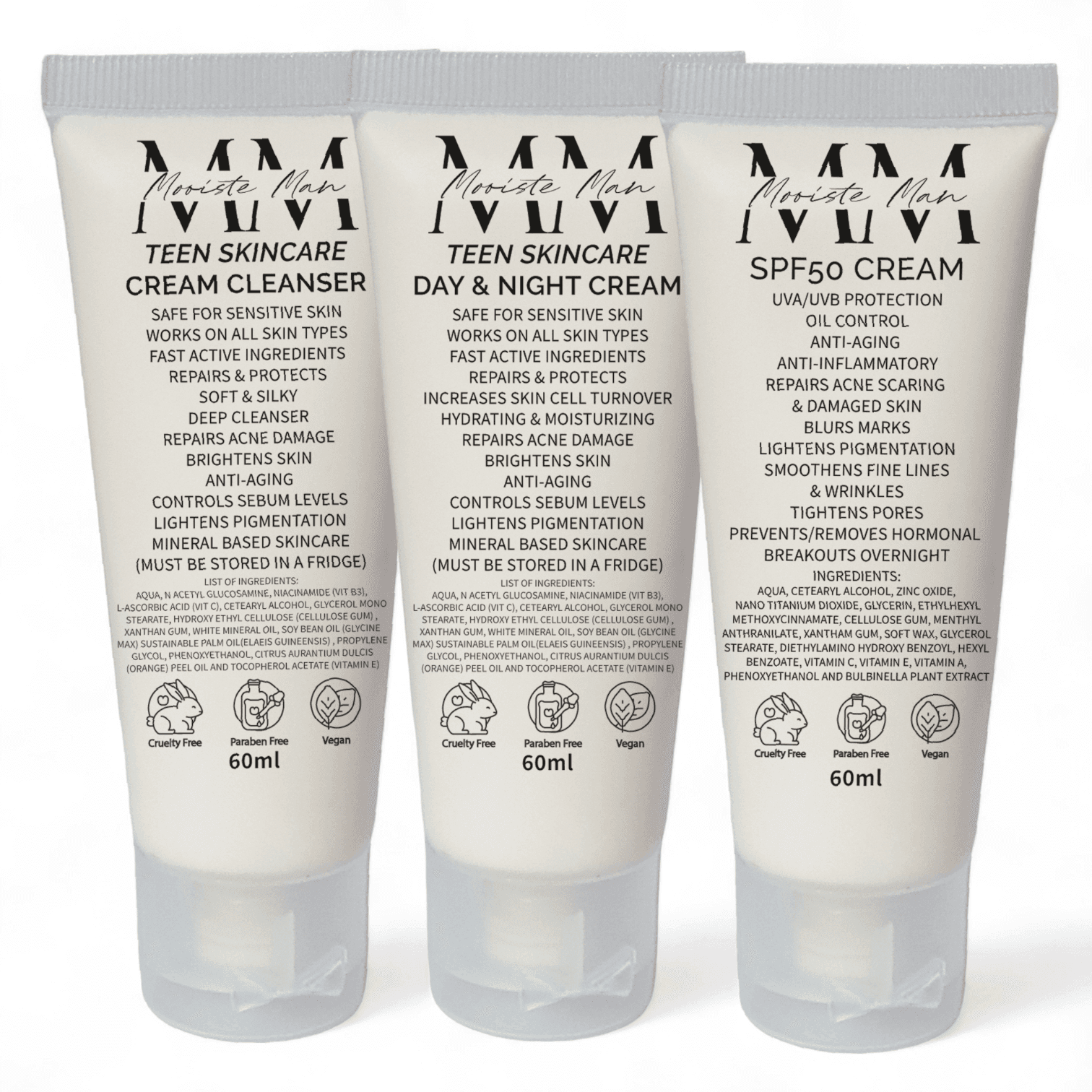
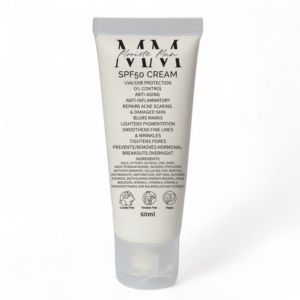
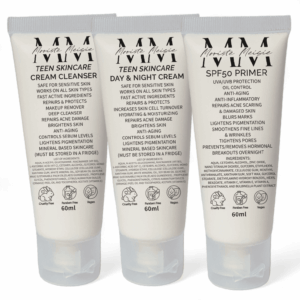
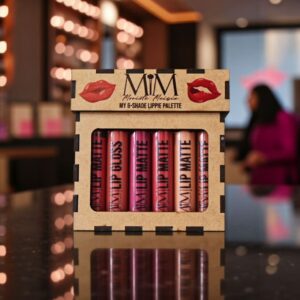
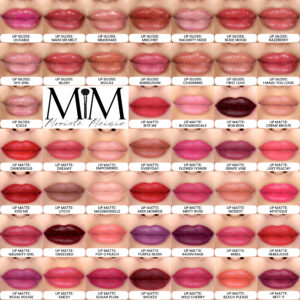
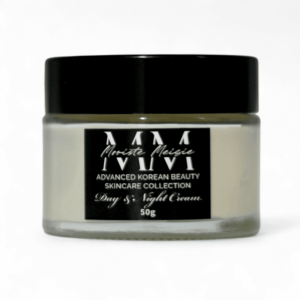
Reviews
There are no reviews yet.